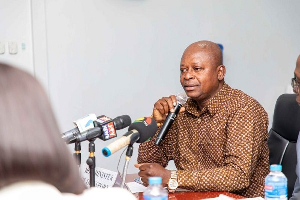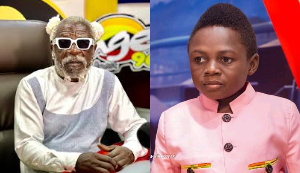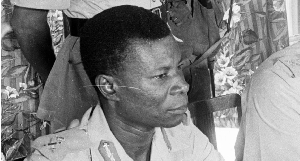Persons sentence in absentia during the period of unconstitutional rule can challenge their sentence at the National Reconciliation Commission (NRC). They can do so by petitioning the NRC and starting their desire to challenging the sentence.
Mr Justice E.K. Amua-Sekyi, chairman of the commission, confirmed this on Thursday and consequently extended an invitation to all persons sentenced in absentia during the period under review. The chairman was speaking at the first press briefing in Accra on Thursday.
He said upon receipt of a petition from a person sentenced in absentia expressing the desire to challenge the sentence, the NRC would seek permission to grant immunity before it. The commission would then investigation the case and come out with the appropriate recommendation.
He explained that the decision to seek immunity to these people was to prevent them from being arrested when they made the effort to challenge their sentence. The commission, he said, was working to ensure that all those who would come to with complaints were capable of being heard too receive justice.
Mr Justice Amua-Sekyi, said that so far, the commission had received 128 complaints in Accra, 50 in Kumasi and Sunyani, and 11 in Takoradi. The complaints cover the spectrum of human right abuses the commission was set up to investgate. He mentioned some of them as torture, brutalities, murder, disappearances and confiscation.
Mr Justice Amua-Sekyi confirmed that the commission had recruited qualified staff to scrutinize the complaints lodged with it and to determined whether they merited hearing. A Legal Department, he said, would then look at the complaints and recommend the necessary action.
The chairman explained, though, the recommendations of the Legal Department would not be binding on the commission, as members would also have to study the complaints before taking a decision on whether to grant a petition or not. On completion of work, the commission would then recommend in a report to be presented to the President, the appropriate compensation to be paid to the victims.
Mr Justice Amua-Sekyi said the commission, under the law, would recommend various forms of reparation, including monetary compensation, schoolarship erection of monument for victims.
General News of Friday, 6 September 2002
Source: Ghanaian Times












